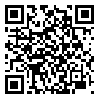Volume 7, Issue 2 (June 2025)
IEEPJ 2025, 7(2): 0-0 |
Back to browse issues page
Download citation:
BibTeX | RIS | EndNote | Medlars | ProCite | Reference Manager | RefWorks
Send citation to:



BibTeX | RIS | EndNote | Medlars | ProCite | Reference Manager | RefWorks
Send citation to:
Khorshidi M M, Mardani A, Mirzaee Azandaryani B. (2025). The Effect of Teaching Problem-Solving Strategies on Academic Self-Regulation and Math Anxiety among Sixth Grade Male Students. IEEPJ. 7(2), doi:10.22034/ieepj.2025.7.2.1057
URL: http://ieepj.hormozgan.ac.ir/article-1-1040-en.html
URL: http://ieepj.hormozgan.ac.ir/article-1-1040-en.html
1- Research Assistant Professor, Farajah Center for Strategic Studies, Bushehr, Iran , M.khorshidi59@gmail.com
2- Principal of the Girls Highschool Fatemeh Zahra, Bandar Genaveh, Iran
3- Department of Educational sciences, BGe.C., Islamic Azad University, Bandar Genaveh, Iran
2- Principal of the Girls Highschool Fatemeh Zahra, Bandar Genaveh, Iran
3- Department of Educational sciences, BGe.C., Islamic Azad University, Bandar Genaveh, Iran
Abstract: (1258 Views)
Objective: The objective of the current investigation was to examine the influence of instructing problem-solving strategies on the academic self-regulation and mathematical anxiety of male sixth-grade students enrolled in elementary schools in Bushehr.
Methods: The methodology employed in this study was of a semi-experimental nature. The statistical population for this research comprised 2113 male sixth-grade elementary school students in Bushehr. The sample utilized in the study consisted of 40 individuals selected through cluster random sampling techniques. The instruments for data collection included the Bouffard (1995) Academic Self-Regulation Questionnaire and the Math Anxiety Questionnaire developed by Chiu and Henry (1990).
Results: The findings indicated that the instruction of problem-solving strategies significantly enhanced the academic self-regulation of participants in the experimental group when compared to control group. Furthermore, the instruction of problem-solving strategies was found to diminish the mathematical anxiety of participants in the experimental group in comparison to the control group.
Conclusions: Overall, the implementation of problem-solving strategies, through enhancements in self-regulation and reductions in anxiety, lays the groundwork for improved academic achievement and heightened engagement in the field of mathematics.
Methods: The methodology employed in this study was of a semi-experimental nature. The statistical population for this research comprised 2113 male sixth-grade elementary school students in Bushehr. The sample utilized in the study consisted of 40 individuals selected through cluster random sampling techniques. The instruments for data collection included the Bouffard (1995) Academic Self-Regulation Questionnaire and the Math Anxiety Questionnaire developed by Chiu and Henry (1990).
Results: The findings indicated that the instruction of problem-solving strategies significantly enhanced the academic self-regulation of participants in the experimental group when compared to control group. Furthermore, the instruction of problem-solving strategies was found to diminish the mathematical anxiety of participants in the experimental group in comparison to the control group.
Conclusions: Overall, the implementation of problem-solving strategies, through enhancements in self-regulation and reductions in anxiety, lays the groundwork for improved academic achievement and heightened engagement in the field of mathematics.
Keywords: Teaching problem-solving strategies, Academic self-regulation, Mathematics anxiety, Elementary schools’ students
Type of Study: Original |
Subject:
Educational Psychology
Received: 2025/01/25 | Accepted: 2025/04/6 | Published: 2025/06/1
Received: 2025/01/25 | Accepted: 2025/04/6 | Published: 2025/06/1
Send email to the article author
| Rights and permissions | |
 |
This work is licensed under a Creative Commons Attribution-NonCommercial 4.0 International License. |







